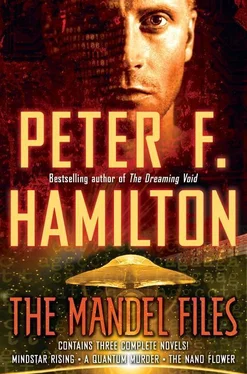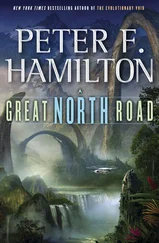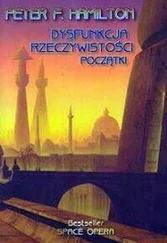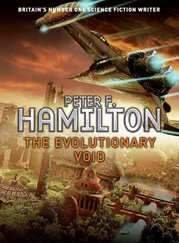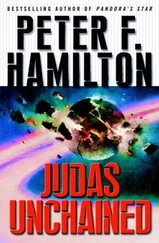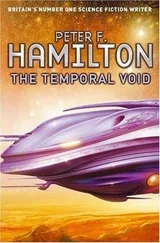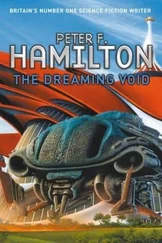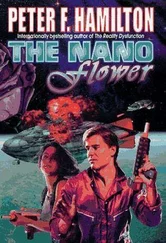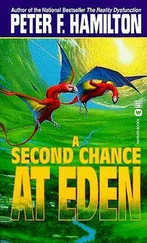Three hundred metres and ten minutes later Greg cleared the market and turned right into Church Street, parking outside a little bakery shop.
On the other side of the road was a head-high stone wall, rapidly disappearing under an avalanche of dark waxy-leafed ivy. There was a raised garden behind it, enclosed by buildings on two sides and a chapel on the third. He went through the open wooden gate and took the steps two at a time.
The garden and buildings used to be part of the Oakham School campus, but private education hadn’t lasted six months after the PSP came to power, swept away in the card carriers’ Equalization crusade. And after that the refugees had hit town demanding somewhere to live. The campus was requisitioned as fast as the shops, playing fields given over to allotments.
The school’s Round House was a plain circular building sitting on the south side of the raised garden, three storeys high, and built from pale Stamford brick, Its door was closed and locked. Greg stood in front of it, motionless, waiting. It was a game he and Gabriel played. After half a minute he admitted defeat once again and turned to the small touchpanel set into the brick. He started pecking out the six-digit code for room seventeen.
“Come on up,” Gabriel’s voice chimed out of the intercom before he’d finished. The lock buzzed like an enraged hornet.
Gabriel Thompson had been a major in the Mindstar Brigade, possessed of the most reliable precognition faculty ever recorded. She was thirty-nine; only two years older than Greg, but judging from physical appearance alone he would’ve said it was closer to twenty. Her fair hair had already faded to a maidenly pearl-white, flab was accumulating all over her body. She wore a fawn-coloured woollen cardigan and tweed skirt, making her broad and shapeless, a half-hearted attempt to disguise her physical deterioration.
It pained him to see her this way, a prematurely middle-aged spinster. Especially as his mind insisted on remembering her as that neat, efficient young officer in Turkey. A fine-looking woman in her day, idolized like an elder sister.
He was given a moody stare as he entered her room on the second floor; it was one of thirty in the Round House, originally intended to sleep two girl boarders. As a permanent bedsit it was terribly cramped.
“Typical,” she said. “Only ever visit when you want something.” Badly applied dabs of make-up made her face shine in the golden afternoon sunlight filtering through the net curtain.
“Not true. Oh, Eleanor says hello.”
“I doubt it.” Gabriel began pouring tea from a silver pot into two bone china cups, all neatly laid out ready.
Rock music from one of the other rooms thumped out a soft bass rhythm in the background, echoing down the stairwell.
“So what have you come for this time?” she asked.
“Philip Evans.”
“He’s dead,” She paused for a moment, then her eyes widened in surprise. “Christ!”
All she needed was a word, a phrase; extrapolating the future from there. Events closest to her came across strongest. There would be no point in him asking her what was going to happen to someone on the other side of the world, she wouldn’t be able to see them.
She’d described the probabilities to him once, explaining her limits after he’d asked her for some impossible piece of intelligence information when they were fighting the Jihad legion.
I’m standing at the mouth of a very large river, she’d said, at the moment when the future becomes the present; and I’m looking across the land where the water originated, seeing the first fork, and beyond that the tributaries branching away, and then the tributaries’ tributaries, splitting, multiplying, ad infinitum. The far horizon gives birth to a trillion rills, all converging to the mouth, each one the source of a possible destiny. They are the Tau lines, future history. On their way towards me they clash and merge, building in strength, in probability, eradicating the wilder fringes of feasibility as they approach confluence, until they reach the mouth: the point of irrevocable certainty.
She could send her mind floating back along those streams, questing, probing for what would come. The prospect terrified her, he knew. She’d hidden that from the Army, but of course he’d seen it at once. The knowledge cost him; as the one person whose empathy allowed him to see the true extent of that dread he felt protective towards her. He was her involuntary confessor, obligated.
Way ahead of her, at the furthest extremity of each of those streams, where the flow was little more than a trickle in the dust, her death waited for her. She refused to let her mind roam far into any of the possible futures; but even that self-imposed proscription meant she lived with the mortal fear of the streams drying up, one by one, the drought inching towards her; a reality so blatant she’d never be able to shield her eldritch sight against it.
Greg thought of himself sitting in a plane as it began its long fall out of the sky; standing paralysed by fear in the middle of the road as some huge lorry bore down, brakes squealing, unable to stop in time. She had to live with the prospect of seeing that eventuality raising its head every minute of every day. Knowing that it was inevitably going to happen.
So he forgave her for going to seed. His espersense was a heavy cross. He would never have the strength to carry hers.
“Exactly,” he said. “Philip Evans made it back from the grave. Can you see who’s behind the blitz on his NN core?”
“Hmm.” Her mind betrayed how intrigued she was. “I’ll have a look.” She cut a slice of almond cake and began munching, staring up at the ceiling, eyes unfocused.
He sipped his tea, trying to identify the herbs. Rosemary, possibly. The market stalls weren’t particularly choosy what they ground up.
“Not a thing,” Gabriel said.
He didn’t show any disappointment. (Was there some alternative-universe Greg Mandel currently raging at her failure?) The answer did exist. Down one of those Tau lines was a future where he and Gabriel teamed up and successfully tracked down whoever had attacked Philip Evans. But for the moment the distance was too great. She wouldn’t stretch herself that far, not even for friendship’s sake.
“Will you help?” he asked.
She looked dreadfully unhappy.
“No big visions,” he reassured her. “Just cross out probabilities for me, eliminate suspects and dead ends. That kind of thing. I’ve got to interview Event Horizon’s giga-conductor team tomorrow, that’s over two hundred people. Then I’ll probably wind up having to go through the security division’s headquarters staff for the mole. My espersense can’t last out that long. Twenty’s my limit. And that hurts bad enough.”
“All right,” she whispered.
He held up the card Morgan Walshaw had given him. Gabriel stared at it, mesmerized. He could sense the trepidation mounting in her mind. She wanted to soar into the future and find out what it meant. The larger, ever-present dread held her back.
“Afterwards,” he said, “succeed or fail, I’m going to pay for your operation. That’s your fee, Gabriel, that gland is coming out.”
She looked at him incredulously, her mind spilling out hope. Her eyes watered. “I can’t,” she moaned.
“Bullshit,” he said softly. “I’m the one who can’t, I can keep my demons at bay. You can’t. You think I’m blind to what the gland has done to you? You’re getting out, Gabriel, no more living under the pendulum.”
Tears began to roll down her cheeks, smearing the makeup. She twisted round to avoid his eyes, looking out of the window.
He put his hands on the nape of her neck, feeling the solid knots of muscle, massaging gently. “I hate seeing you like this. You don’t live; you crawl from day to day. It’s a miserable existence. Too timid to walk under the open sky in case a lightning bolt hits you. It’s got to stop, Gabriel. No messing.”
Читать дальше
